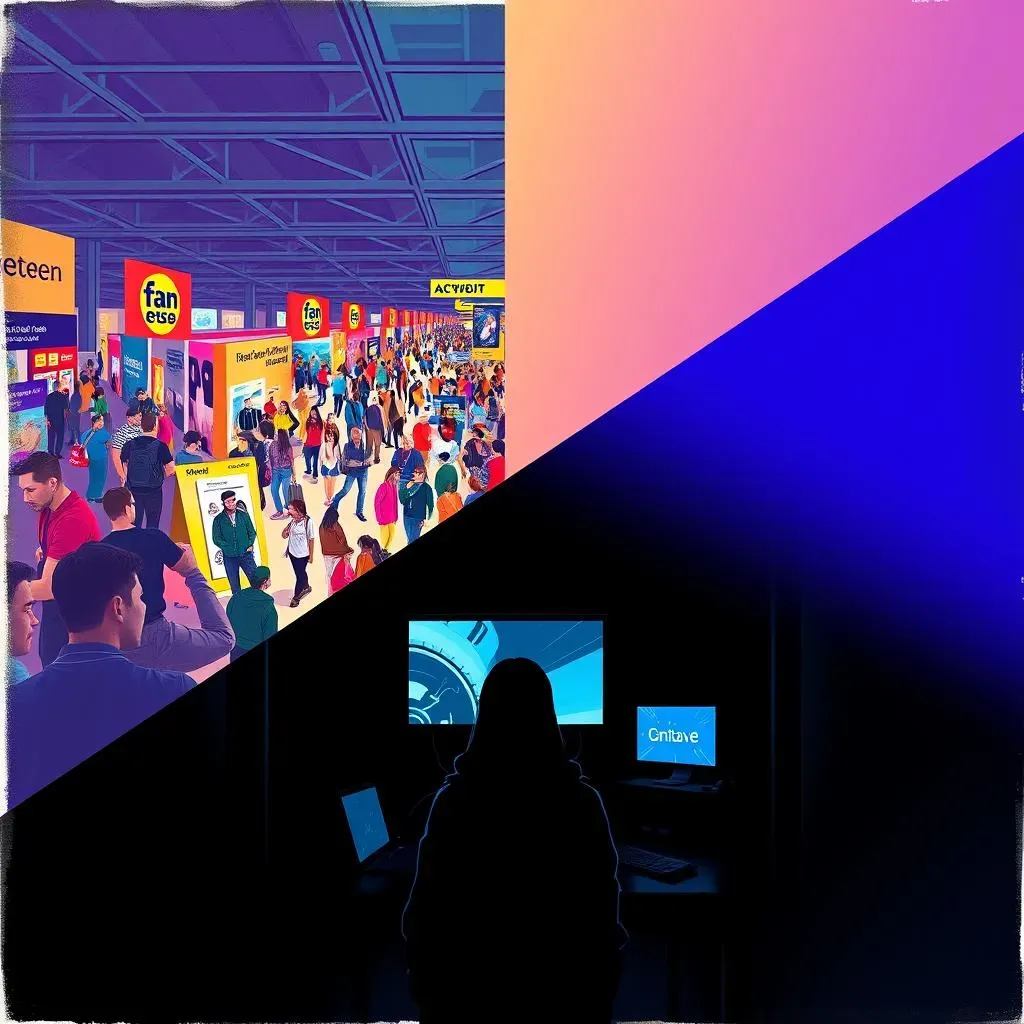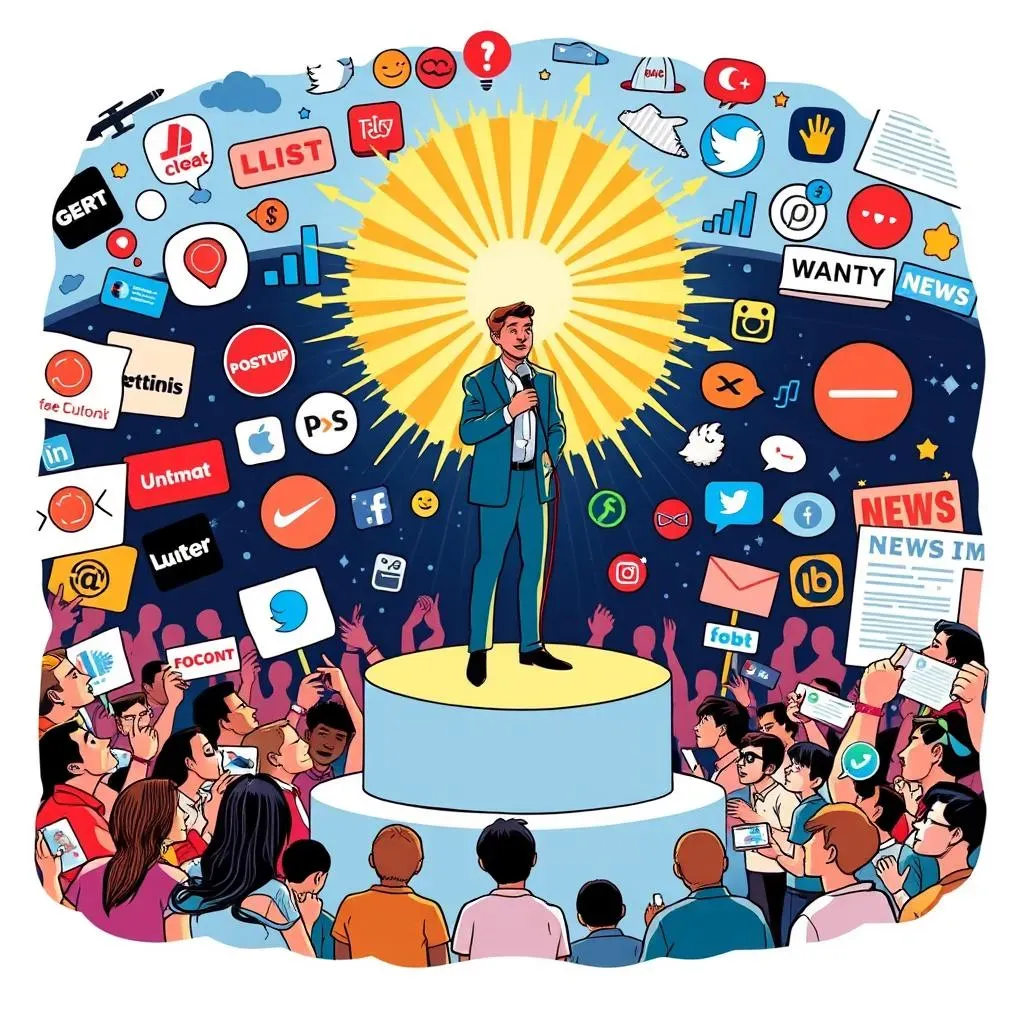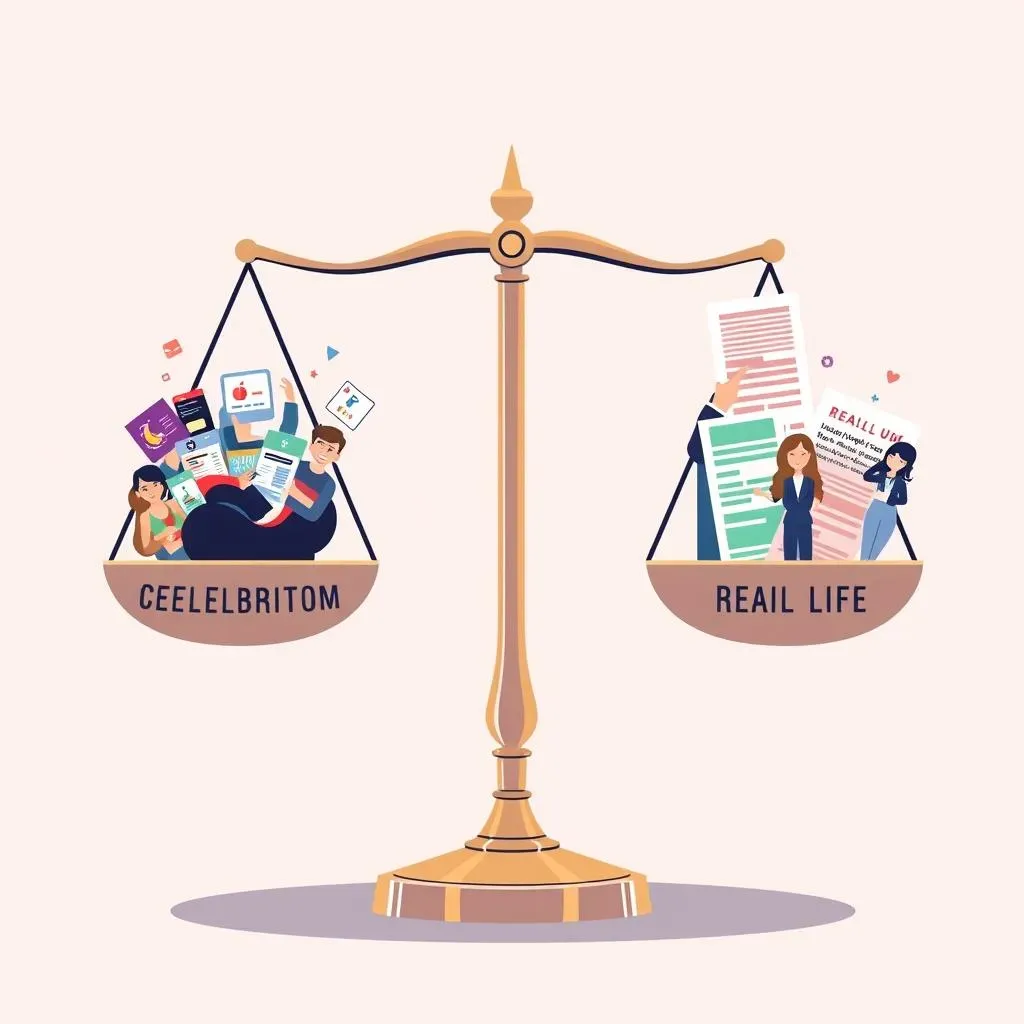Table of Contents
Have you ever wondered why some people are so obsessed with celebrities? It's more than just liking a movie or a song. There's a whole world of "celebrity fan psychology insights" that explains why we feel such strong connections to people we've never met. This article isn't about judging fans; it's about understanding the powerful forces behind fandom. We'll look at why some fans form such intense attachments, and how these connections can affect their lives, both positively and negatively. We will also explore how celebrities can influence our choices and beliefs, and finally, we’ll give you some real-world tips for navigating the world of fandom. We'll explore the science behind the screams, the reasons for the devotion, and the real impact of these parasocial relationships. So, buckle up, because we're about to uncover some fascinating truths about celebrity fan psychology insights.
Why We Love Who We Love: Understanding Celebrity Fan Psychology

Why We Love Who We Love: Understanding Celebrity Fan Psychology
The Lure of the Limelight
Okay, so we see these famous faces on screens and magazines, and it's not just random that we develop feelings about them. It's this whole thing called "parasocial relationships," which is a fancy term for a one-sided friendship. We feel like we *know* these people, even though they have no idea we exist. We watch their interviews, follow their social media, and start to feel like we're part of their lives. It’s like watching a TV show, but instead of fictional characters, it's real people, or at least, the image they project to the world. It's a weirdly human thing to do, and it's not as shallow as it might seem.
Think about it: you might feel a connection with a musician because their lyrics speak to your experiences, or you might admire an actor's bravery in a certain role. These feelings get reinforced when we see them consistently, and they become familiar. It’s like having a friend who always gives you something interesting to think about. This familiarity breeds a sense of comfort and connection, and that's what hooks us in. It's like when you find a new song you love, and you just want to listen to it over and over— except it’s a person, not a song. It's the same part of your brain getting a kick of good feelings.
The Psychology Behind the Connection
Now, why do we get so attached? It’s all tied to our need for connection and belonging. We’re social creatures, and we crave relationships. When we see a celebrity who embodies qualities we admire or aspire to, they can fill a void. It’s like having a role model, but one you don’t actually know, which makes it a bit less intimidating. This admiration can also be a form of escape. Life can be hard, and getting lost in the world of a favorite celebrity can be a fun distraction. We see their successes, their struggles, and it gives us something to root for or relate to.
Also, being a fan can give us a sense of identity. If you're part of a fan group, you're with other people who share your passion. It’s like joining a club. You've found your people. This sense of belonging is powerful and can make the connection to the celebrity even stronger. It’s a way of saying, "I'm not alone in this," and that's comforting. So, it's not just about the celebrity; it's about how they make us feel about ourselves and the world around us. It’s a complex thing, this love for someone you don’t know.
Concept | Description |
|---|---|
Parasocial Relationship | A one-sided relationship where a fan feels a connection to a celebrity. |
Identification | Fans see themselves in the celebrity, leading to stronger feelings. |
Social Identity | Fandom provides a sense of belonging and shared identity. |
The Ups and Downs: Exploring the Impact of Celebrity Fandom

The Ups and Downs: Exploring the Impact of Celebrity Fandom
The Bright Side of Fandom
Okay, so it's not all just screaming at concerts and buying merch. Fandom can actually be a pretty awesome thing. For starters, it can bring people together. Think about fan conventions or online communities – they're like giant meetups for people who share a common passion. It’s a place where you can be yourself, talk about your favorite things without feeling weird, and make genuine connections with others who ‘get it’. This sense of community can be especially important for people who might feel isolated or different in their everyday lives. It’s a safe space where everyone understands why you’re so excited about the latest movie trailer or the new album drop.
Plus, being a fan can inspire creativity. People write fan fiction, create amazing artwork, and make videos dedicated to their favorite celebrities. It’s a way of expressing yourself and connecting with others through shared creativity. This kind of creative output can be incredibly rewarding and can even lead to new friendships and opportunities. Fandom can also encourage you to learn new skills, like video editing or creative writing. Who knew loving a celebrity could unlock so much talent? It’s like a secret superpower that you get from being a fan.
The Darker Side of Devotion
Let’s be real, though, it's not all sunshine and rainbows in the world of fandom. Sometimes, the connection can become a bit too intense. When a fan becomes obsessed, it can start to affect their mental health. They might start to neglect their own lives and relationships in favor of keeping up with their favorite celebrity's every move. It’s like they’re living in a parallel universe, where the celebrity's life is more important than their own. This can lead to anxiety, depression, and a general sense of unhappiness.
Another issue is that some fans can become overly critical and possessive of their favorite celebrities. They might get angry if the celebrity does something they don't like, or they might lash out at other fans who don't share their opinions. It’s like they feel entitled to control the celebrity’s life, which, let's be honest, is a bit much. This can create a toxic environment within the fandom, where it’s hard to have a civil conversation. So, while fandom can be a great way to connect, it's also important to remember that celebrities are just people, and being a fan shouldn't come at the expense of your own well-being or the well-being of others.
Positive Impacts | Negative Impacts |
|---|---|
Community and belonging | Obsession and mental health issues |
Creative expression | Possessiveness and toxicity |
Inspiration and motivation | Neglecting personal life |
Celebrity Influence: How Stars Shape Our Choices and Views

Celebrity Influence: How Stars Shape Our Choices and Views
The Power of the Endorsement
Alright, let’s talk about how celebrities can get us to buy stuff. It's not just about seeing them in a commercial; it's about the whole package. When a famous person we admire uses a product, we start to think, "Hey, if it's good enough for them, it's probably good enough for me." It’s like they're giving us a personal recommendation, even if they’re getting paid a ton of money to do it. This is why companies spend so much on celebrity endorsements – because they work. It’s not just about the product itself; it's about the lifestyle and image that the celebrity represents. We're not just buying a shampoo; we're buying into the idea that we could be a little more like that celebrity.
This influence isn't just limited to products, though. Celebrities can also sway our opinions on important issues, like social justice or environmental concerns. When a celebrity speaks out about something, it often gets a lot of attention, and that can raise awareness and spark conversations. It's like they're using their platform to amplify messages that might otherwise get ignored. This can be a powerful force for change, but it also means that celebrities have a responsibility to be thoughtful about what they promote. It’s like having a megaphone – you have to be careful about what you shout into it. The impact goes way beyond just buying things; it’s about shaping the way we see the world.
Type of Influence | Example |
|---|---|
Product Endorsement | A celebrity promoting a specific brand of clothing or food. |
Social Issue Advocacy | A celebrity speaking out about climate change or human rights. |
Trend Setting | A celebrity popularizing a certain fashion style or hairstyle. |
The Ripple Effect
Now, you might be thinking, "Well, I'm not easily influenced by celebrities." But the truth is, we're all affected by them, even if we don't realize it. The images and messages that celebrities put out there get into our subconscious, shaping our perceptions of what's cool, what's desirable, and what's normal. It’s like they’re setting the standard, whether we like it or not. This is especially true for younger people who might be more vulnerable to these kinds of influences. It’s like they’re constantly bombarded with these perfect images, which can make them feel insecure about their own lives and appearances. It's a lot of pressure for them to live up to, and it can lead to some real problems.
It's not just about the big, obvious endorsements, either. It's also about the subtle things, like the way a celebrity dresses or the causes they support. All of this sends messages that we unconsciously absorb. This kind of influence is everywhere we look. From social media to television, celebrities are constantly shaping our culture. It’s like they’re the architects of cool, and we’re all just living in the world they’ve designed. The way we consume media, the way we interact with each other, and even the way we see ourselves, it all gets influenced by the celebrity world.
“With great power comes great responsibility.” - Uncle Ben (Spiderman)
Navigating Fandom: Practical Insights into Celebrity Fan Psychology

Navigating Fandom: Practical Insights into Celebrity Fan Psychology
Finding Your Balance
Okay, so how do you enjoy being a fan without letting it take over your life? It's all about finding a healthy balance. First off, remember that celebrities are people, not gods. They have flaws, make mistakes, and live lives that are often very different from what we see on social media. It's easy to get caught up in the fantasy, but it's crucial to keep things in perspective. Don't let your obsession with a celebrity overshadow your real-life relationships or goals. Your friends, family, and personal ambitions are important, and they deserve your time and attention too. It's like having a favorite dessert – it's great in moderation, but you wouldn't want to eat it for every meal.
Another thing to keep in mind is that your worth isn't tied to your favorite celebrity. It's tempting to measure yourself against their achievements or lifestyle, but that's a recipe for unhappiness. Instead, focus on your own journey and celebrate your own successes. Use your admiration for a celebrity as inspiration, not as a yardstick for your self-worth. Maybe they're a talented musician, and that inspires you to pick up an instrument, or perhaps they're passionate about a cause, and that motivates you to get involved in your community. Fandom can be a positive force when it encourages you to grow and develop as an individual, rather than just living vicariously through someone else.
Staying Safe in the Fandom World
The internet can be a wild place, and fandom is no exception. It's important to be aware of the potential dangers and take steps to protect yourself. Be careful about what you share online, especially your personal information. Remember that not everyone you meet in a fan community is going to be friendly or trustworthy. It’s like being in a crowded place – you need to be aware of your surroundings and trust your instincts. If someone makes you feel uncomfortable or pressured, don't be afraid to disengage. There are plenty of other fans out there, so you don’t have to stick around if you feel unsafe. Always prioritize your well-being and mental health. If you find that your fandom is causing you stress or anxiety, it might be time to take a step back and re-evaluate things.
Also, be respectful of other fans, even if you don't agree with their opinions. It’s okay to have different views, but it’s not okay to be mean or disrespectful. Remember that everyone is just trying to enjoy their fandom in their own way. Creating a positive and supportive community is everyone’s responsibility. It’s like being on a team – you have to work together to make sure everyone has a good experience. Don’t let disagreements turn into personal attacks. Keep the focus on the shared love of the celebrity, and try to see things from other people’s perspectives. Fandom should be a fun and inclusive experience for everyone involved, not a source of conflict and negativity.
Tip | Description |
|---|---|
Set Boundaries | Don't let fandom take over your life; maintain a balance. |
Be Mindful Online | Protect your personal information and be cautious in online communities. |
Respect Others | Be kind and understanding towards other fans. |
Focus on Growth | Use fandom as inspiration for personal development. |